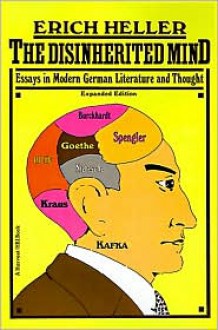Since first publication in 1952, The Disinherited Mind has been in continuous demand, recognized as a work whose significance extends far beyond the subject of German letters. The noted critic and poet Edwin Muir has written of it, "The condition it describes is our condition, and I can think of...
show more
Since first publication in 1952, The Disinherited Mind has been in continuous demand, recognized as a work whose significance extends far beyond the subject of German letters. The noted critic and poet Edwin Muir has written of it, "The condition it describes is our condition, and I can think of no other modem book in which it is described so clearly."The unifying theme is the sense of values embodied in the works of key German poets, writers, and thinkers from Goethe to Kafka, particularly the consciousness of life's deprecation. While earlier poets and philosophers were preoccupied with the marvelous, Professor Heller writes, their modem successors try desperately to ward off "the predominance of the prosaic." He deals with this problem most directly in the central essay, "Rilke and Nietzsche." Other essays discuss Goethe's Faust, his opposition to Newtonian science, Burckhardt's philosophy of history, Kafka's The Castle, Spengler's historical imagination, and Karl Kraus's satire. To this expanded edition Professor Heller has added a new preface and two essays that belong thematically -- one discussing Nietzsche's effect on Yeats, and the second, the metamorphoses in Nietzsche's Thus Spoke Zarathustra.
show less

